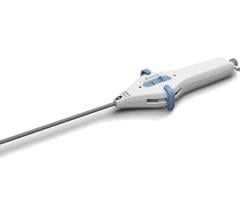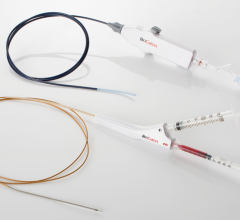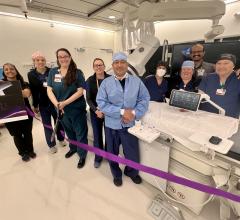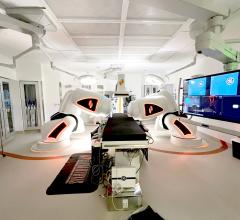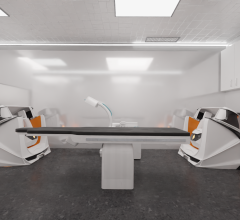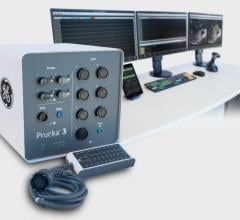
Medtronic Announces FDA Approval and Launch of its Advisa MRI Pacemaker System
February 18, 2013 — Medtronic Inc. announced the U.S. Food and Drug Administration (FDA) approval and U.S. launch of its Advisa DR MRI (magnetic resonance imaging) SureScan pacing system. The Advisa MRI system is Medtronic’s second-generation MR-conditional pacemaker and is the first system to combine the most advanced pacing technology with proven MRI access.
MRI is the standard of care in soft tissue imaging, providing information not seen with X-ray, ultrasound or computed tomography (CT) scans, and is critical for early detection, diagnosis and treatment. Advisa MRI was specifically tested and approved for use as labeled with MRI scanners in the United States. Of the 156 patients scanned in the Advisa MRI clinical trial, none showed any MRI-related complications. The new system includes an Advisa MRI device and two CapSureFix MRI SureScan leads, which must be used together.
“Your physician can implant a pacemaker with advanced options that will allow for broad access to MRI scanning,” said J. Rod Gimbel of Cardiology Associates of East Tennessee in Knoxville, Tenn. “MRI is just so very important and traditional pacemakers not FDA approved for MRI scanning often prevent the patient from having an MRI when they need it. With more than 85 percent of pacemaker patients being at least 65 years old and having multiple comorbidities for which MRI may be needed, it’s key that physicians and patients have a pacing system that allows MRI imaging as a diagnostic procedure.”
The first SureScan pacemaker system was introduced in Europe in 2008, and its use in the MRI environment is supported by clinical studies and extensive computer modeling, as well as real-world data. To date, more than 100,000 Medtronic SureScan devices have been sold worldwide;[1] and, in the United States, it is estimated that more than 10 percent of patients with SureScan pacing systems have received MRIs.[2] These patients received Medtronic’s first-generation Revo MRI SureScan pacing system, which was the only FDA approved (February 2011) MR-conditional pacemaker in the United States before the Advisa MRI system.
Until the availability of Medtronic’s SureScan pacing systems, patients with pacemakers in the United States have been contraindicated from receiving MRI scans because of potential interactions between the MRI and device function. According to published literature, up to 75 percent of patients worldwide with implanted cardiac devices are expected to need an MRI scan during the lifetime of their devices.[3]
Medtronic’s Advisa MRI pacing system provides physicians with innovative technology that will benefit their patients, including the MVP (Managed Ventricular Pacing) algorithm, which is proven to reduce unnecessary ventricular pacing.[4] Additional Advisa features include:
- Complete automaticity with Ventricular and Atrial Capture Management (VCM and ACM) to eliminate manual threshold checks and extend longevity of the device by up to one year.[5]
- Diagnostics, such as the Cardiac Compass Report, and AF management tools that assist physicians in the early detection and treatment of atrial fibrillation.
- Remote monitoring via Medtronic’s CareLink Network, which transmits comprehensive arrhythmia and diagnostic device data to a physician’s clinic.
- Rate Drop Response that identifies abrupt cardiac slowing and responds by pacing the heart at an elevated rate, which may reduce the frequency of syncope (fainting) in patients with apparent cardio-inhibitory vasovagal syncope.[6], [7]
- High upper tracking rate to provide pacing support at higher heart rates for active and younger patients.
This system is the latest addition to a growing number of Medtronic devices, which are designed for MRI access, including the SynchroMed II programmable drug infusion system available worldwide and the SureScan neurostimulation systems for the management of chronic pain that are available in Europe. In addition, SureScan pacing systems — including Advisa MRI — are available worldwide.
For more information: www.medtronic.com
References:
1. Medtronic data on file. November 27, 2012.
2. Medtronic data on file. November 5, 2012.
3. Kalin R and Stanton MS. Current clinical issues for MRI scanning of pacemaker and defibrillator patients. PACE 2005;28:326-328.
4. Gillis AM, Pürerfellner H, Israel CW, et al. Reduction of unnecessary ventricular pacing due to the Managed Ventricular Pacing (MVP) mode in pacemaker patients: Benefit for both sinus node disease (SND) and AV block (AVB) indications. Heart Rhythm. May 2005;2(5):S40. Abstract AB21-1.
5. Rosenthal LS, Mester S, Rakovec P, et al. Factors influencing pacemaker generator longevity: results from the complete automatic pacing threshold utilization recorded in the CAPTURE Trial. Pacing Clin Electrophysiol. August 2010;33(8):1020-1030.
6. Nordlander R, Hedman A, Phersson SK. Rate responsive pacing and exercise capacity—a comment. PACE. 1989;12:749-751.
7. Stone J, Crossley G. Current sensor technology for heart rate modulation by artificial pacing. Clinical Electrophysiology Review. 1999;3:10-14.

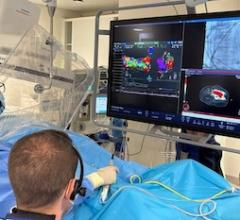
 January 29, 2026
January 29, 2026 



